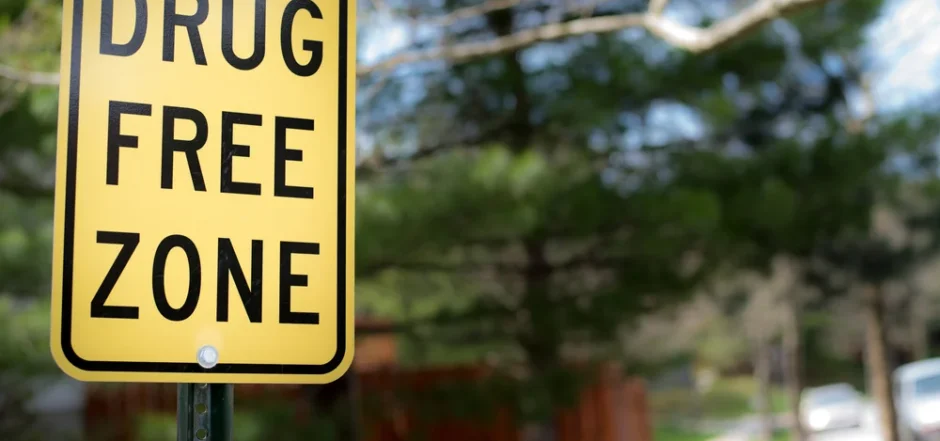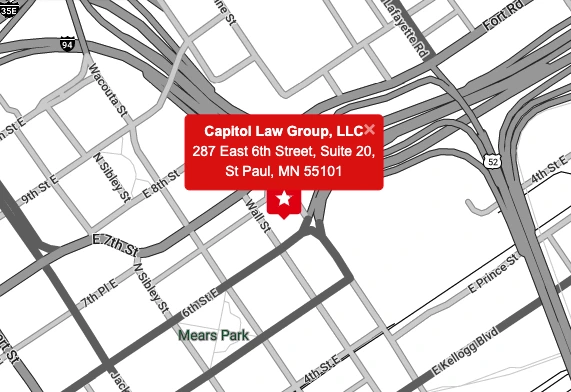Five Drug-Free Zone Enhancements and Drug Crime Lawyers in St. Paul

The penalties for sale or possession of cocaine or methamphetamines are already very high. A small amount of either one could mean a lengthy prison sentence. The penalties are even harsher if the offense occurred in a designated drug-free zone, as outlined in Section 152 of the Minnesota Statutes.
But drug possession charges are quite complex, as are drug sales charges. As a result, a drug crime lawyer in St. Paul has a good chance to obtain a favorable result in these cases.
Park
Legally, a “park” is a publically-owned and publically-maintained space. Many places are only one or the other. For example, assume the City of Mendota opened a park near the river. Shortly thereafter, the city began allowing a local Boy Scout troop to maintain the park. Over the years, the Scouts maintained existing playground equipment and added some new things. Moreover, if someone calls the city and asks about park hours or anything else, the City refers the caller to the Boy Scouts.
Arguably, that park is not a “public” park anymore, because the city effectively handed the deed to a private organization.
Other parks were never pubic places to begin with. A homeowners’ association, youth sports organization, apartment complex, or some other private entity designed, built, and maintained it.
Many times, Ramsey County prosecutors do not recognize the difference between public and private parks. They note that the arrest occurred in a “park” and immediately assume it was a public park. On a related note, Minnesota law does not have a 1,000 feet, 500 feet, or other zone. The offense must occur in the park, and not near it.
School
This enhancement exists because authorities want to keep drugs away from children. So, if there are no children present, there’s no reason to add an enhancement. To many Ramsey County jurors, prosecutors are police are overly-aggressive if they try to amplify the penalty anyway.
Schools only have children during daylight hours on weekdays, and during fall and spring months. At other times, they are usually just empty buildings. Or, if there are people around, they are probably there for non-school purposes, such as a church service or community meeting.
Furthermore, some school buildings, such as administrative or transportation facilities, almost never have children. The school enhancement might technically apply in these cases, but a drug crime lawyer in St. Paul can make an effective case that the enhancement is a police overreach.
Drug Treatment Facility
This controversial drug-free zone enhancement combines some elements of parks, which are discussed above, and some elements of public housing projects, which are discussed below.
Generally, in this context, drug treatment facilities are places which were either built with public money or accept Medicaid or other public funds. Many treatment facilities are 100 percent private. On a related note, most people consider a 12-step meeting part of the drug treatment process. But that may not be true under Minnesota’s drug-free zone enhancement.
Additionally, some hospitals contain outpatient, or even inpatient, drug treatment units. But a hospital is not a drug-free zone. So, if Ramsey County prosecutors try to enhance charges in these situations, a drug crime lawyer in St. Paul may be able to get the charges reduced.
Corrections Facility
The law is a bit unclear as to whether court supervision offices, criminal courtrooms, and pretrial services offices are “corrections facilities.” True, most of these places have holding areas. But that fact may or may not make them correctional facilities. But in most cases, if prosecutors add this particular enhancement, there is little that drug crime lawyers in St. Paul can do. Fortunately, this enhancement provision is one of the least common ones.
Pubic Housing Project
When most people think of public housing projects, they picture somewhat-dilapidated apartments in a large single-site development.
But not all public housing looks like that. Some apartment complexes are designated as affordable housing areas. The government subsidizes these owners so they can charge lower rents. These places are not exactly public housing, and not exactly private housing.
Additionally, many private landlords accept HUD Section 8 and other vouchers. Once again, such a housing development or apartment complex is partially public and partially private.
In all these situations, the normal drug possession and drug sales defenses apply. These defenses include both procedural defenses, like lack of a proper search warrant, and substantive defenses, like the state’s failure to prove the “drug” was, in fact, an illegal substance.
Rely on an Experienced Attorney
Drug-free zone enhancements make serious drug crime charges even more serious. For a free consultation with an experienced drug crime lawyer in St. Paul, contact Capitol City Law Group, LLC. Go online now, call us at 651-705-8580, or stop by 287 6th St E, Suite 20, St Paul, MN 55101.




